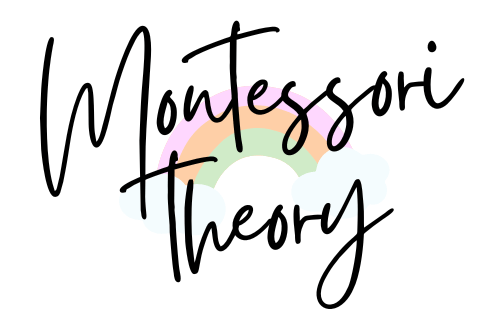In the electrifying arena of educational reform, Montessori schools have seized the limelight, sparking heated debates and splitting opinions down the middle. Positioned at the forefront of alternative education since the dawn of the 20th century, they boldly challenge the conventional, cookie-cutter model of learning. However, lurking beneath their forward-thinking facade, Montessori establishments find themselves at the heart of a storm, criticized as havens of privilege for the well-heeled, even as they profess to be the forges shaping tomorrow’s intellectual giants. This article takes you on an exhilarating journey through the controversy: Are Montessori schools merely privileged bubbles pretending to be paradises of intellect, or are they truly the workshops where genius is crafted?
The Ideals Versus the Realities of Montessori Education
A Revolutionary Pedagogical Odyssey
The Montessori Method, conceived by Dr. Maria Montessori in the early 20th century, was revolutionary. It eschewed the one-size-fits-all approach to education, advocating instead for a child-centered learning environment that fosters independence, curiosity, and a love for learning. Montessori classrooms are characterized by mixed-age groups, specialized learning materials, and a guiding principle that children lead their own educational journeys.
Montessori’s philosophy is underpinned by a belief in the inherent potential of each child. The method’s holistic approach aims not just at academic excellence, but at developing emotionally intelligent, socially responsible, and globally aware individuals. It’s an ideal that resonates with many parents and educators, offering a beacon of hope in a world where education often feels disconnected from the realities of the modern age.
Supporting this philosophical foundation, a 2017 study published in the Frontiers in Psychology journal provides empirical backing for Montessori’s efficacy. The research found that children in Montessori schools frequently outperform their peers in traditional settings in key areas such as mathematics and reading skills. This evidence underscores the value of the Montessori method’s emphasis on self-directed learning and individual pacing, suggesting that such an approach can indeed foster superior academic outcomes.
The Mirage of Accessibility
However, the idyllic vision of Montessori education often clashes with the harsh reality of its accessibility. Critics argue that the specialized materials and highly trained educators integral to Montessori schools carry a price tag that effectively excludes a significant portion of the population. This economic barrier raises critical questions about the system’s inherent elitism. Additionally, Montessori’s popularity among celebrities and the wealthy further fuels the perception of it being a ‘snobbish’ choice, overshadowing its egalitarian educational ideals.
The disparity between the Montessori ideal and its practical implementation necessitates a critical examination of its role within society. It begs the question: Can a system that champions individuality and independence also unwittingly become a vector for social division? Or perhaps the issue does not lie solely with the Montessori method itself but with a broader societal failure to adequately prioritize and fund education in a way that renders innovative approaches like Montessori accessible to all.
In Chicago, for instance, the 2023-2024 academic year tuition fees at a Montessori school illustrate the financial burdens placed on families, with costs ranging from up to $20,020 for infants to $8,865 for elementary students. This range from infancy through elementary education starkly highlights the substantial financial investment required, underlining the profound economic barriers many families face.
As we delve deeper into this complex issue, it becomes imperative to discern whether the challenges associated with Montessori education are intrinsic to its system or reflective of broader educational and societal disparities. This discussion lays the groundwork for a thorough investigation into both the criticisms and accolades Montessori education attracts, urging us to move beyond superficial perceptions and truly understand what Montessori schools signify in the modern educational landscape.
The Snobbery Accusation: Elitism in Disguise?
The critique of Montessori schools as bastions of elitism is a contentious aspect of the debate. Detractors argue that Montessori education, with its exclusive materials, specialized teachers, and often steep tuition fees, is not just a pedagogical choice but a status symbol—a marker of privilege in a society already stratified by wealth and opportunity. This perception is exacerbated by the media portrayal of Montessori as the educational choice of the rich and famous, leading to a public image that oscillates between admiration and resentment.
Economic Barriers
The financial aspect cannot be ignored. Montessori schools, often private and independently operated, require resources that public funding does not typically cover. This leads to tuition fees that can be prohibitive for middle and low-income families, inadvertently creating an environment that feels exclusive. The argument follows that if Montessori education is truly superior, its inaccessibility perpetuates a system where quality education is a privilege rather than a universal right.
Social Implications
Beyond the economics, there’s a social dimension to the elitism accusation. Montessori education promotes independence, self-directed learning, and critical thinking—skills that are invaluable in any societal context. However, when these opportunities are available only to a select few, it reinforces social divides and perpetuates inequality. The concern is that Montessori schools, unintentionally or not, contribute to a wider societal problem by creating educational ‘echo chambers’ where children from privileged backgrounds interact predominantly with peers of similar socio-economic status.
The Genius Factory: Myth or Reality?
On the flip side of the debate is the view of Montessori schools as unparalleled nurseries for geniuses. Proponents argue that the Montessori method, with its emphasis on self-directed learning, creativity, and respect for a child’s natural psychological development, is uniquely positioned to nurture the intellectual and emotional capacities of children. This section explores whether Montessori schools live up to their reputation as incubators for future leaders, innovators, and creative minds.
Success Stories
The evidence in favor of Montessori’s effectiveness is compelling. Numerous studies and anecdotal reports highlight Montessori graduates’ exceptional achievements, citing alumni who have gone on to make significant contributions in various fields. The argument here is not merely about academic success but about the holistic development of individuals who are adaptable, confident, and equipped to tackle complex challenges. Montessori’s hands-on, exploratory approach is credited with fostering these outcomes, suggesting that the method does indeed offer something beyond the conventional educational model.
Beyond the Hype
However, the glorification of Montessori education raises questions about the veracity of its purported advantages. Is the success of Montessori alumni a direct result of the educational method, or does it reflect a self-selecting group of families who value education highly and provide a wealth of opportunities outside of school as well? Moreover, critics question whether the Montessori method is scalable and adaptable enough to be effective across diverse cultural and socio-economic contexts, challenging the notion that Montessori is a one-size-fits-all solution to the challenges facing education today.
Exploring Alternative Educational Models
To contextualize Montessori education within the wider context of global educational philosophies, an examination alongside the Reggio Emilia approach and Finland’s national education system is revealing. The Reggio Emilia method shares Montessori’s dedication to child-led discovery, yet it further emphasizes cooperative learning and considers the environment to be an integral part of the learning process, acting as a “third teacher.” Originating from post-World War II Italy, Reggio Emilia provides a distinctive blueprint for fostering creativity and social skills, all while sidestepping the steep tuition fees typical of Montessori institutions.
Meanwhile, Finland’s education system stands out for its remarkable achievements and commitment to equality, embodying principles that diverge significantly from those of Montessori. Characterized by minimal homework, a delay in standardized testing until age 16, and a pronounced focus on play and communal interaction, the Finnish model showcases the potential for delivering high-quality, inclusive education on a broad scale. The triumphs of Finland’s approach, supported by substantial public funding and a cadre of well-educated teachers, deliver essential lessons on the feasibility of marrying educational excellence with egalitarian principles.
Montessori and the Future of Education: A Crossroads
As we navigate the contentious waters surrounding Montessori education, the pivotal question arises: What does the future hold for this century-old pedagogical approach? In an era where educational equity and accessibility are increasingly prioritized, can Montessori evolve to address its criticisms, or is it at risk of becoming an educational relic, accessible only to the privileged few?
Bridging the Gap
Efforts are underway in various parts of the world to integrate Montessori principles into public education systems, aiming to bridge the socio-economic divide. These initiatives seek to dismantle the barriers of exclusivity by offering Montessori’s benefits to a broader demographic. This includes the establishment of public Montessori schools and the incorporation of Montessori methods into traditional classrooms. Such efforts are crucial in testing the scalability of Montessori education and its adaptability to diverse educational environments and cultural contexts.
Inclusivity and Innovation
The challenge for Montessori schools is not merely to expand access but to do so without compromising the core principles that define the Montessori method. This requires innovation in teacher training, curriculum development, and the creation of learning materials that are both affordable and effective. Moreover, Montessori education must continue to adapt to the changing landscape of global education, which now includes digital literacy and an increased focus on social and emotional learning.
Provoking Thought, Sparking Debate
The fiery debate at the heart of Montessori education—straddling the fine line between lofty ideals and accusations of elitism—mirrors larger battles over educational justice and efficacy. Venturing beyond mere critique to absorb global insights and concrete evidence, this dialogue seeks to unravel the complexities of the Montessori phenomenon. By pitting Montessori against the backdrop of alternative pedagogies, we’re thrust into a provocative challenge to rethink what education ought to be—a crucible for fostering a society that not only recognizes but zealously cultivates the latent potential within every child. Such a deep-dive into the Montessori controversy transcends simple defense or condemnation, urging us toward a united quest for educational models that promise to democratize brilliance, emboldening a world community that’s both inclusive and awakened.


